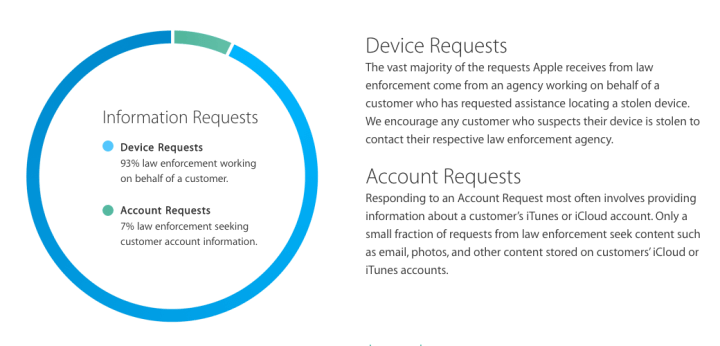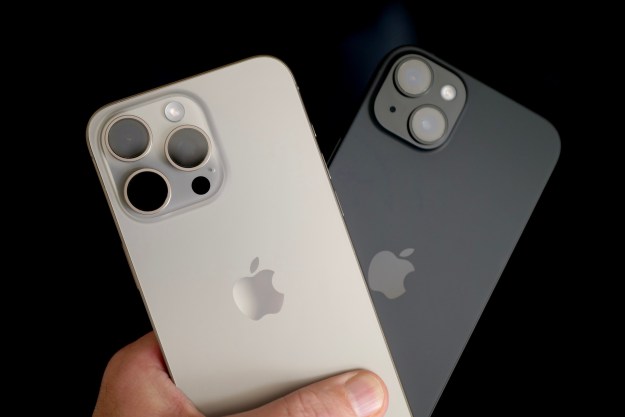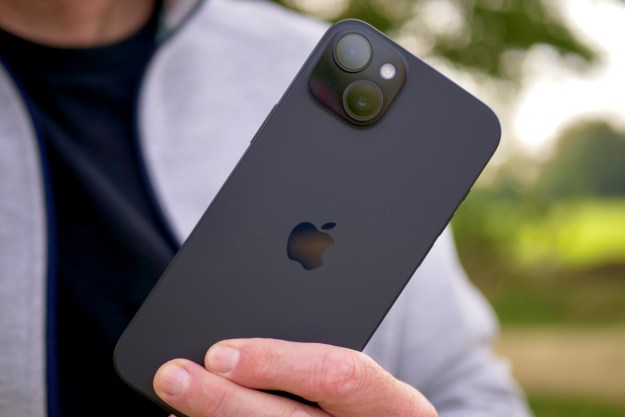
Starting with iOS 8, Apple’s new approach to user privacy essentially bars the company and anyone other than the owner of a device from accessing the sensitive information stored on iPhones or iPads. Data including messages, photos, emails, contacts, call history, notes, and reminders sit behind passcode-protected encryption that only the user has access to. “Apple cannot bypass your passcode and therefore cannot access this data,” the company states on its website.
This serves as a solution to Apple’s problems as much as it does to individual users: “It’s not technically feasible for us to respond to government warrants for the extraction of this data from devices in their possession running iOS 8,” Apple says. It has essentially used the new privacy policy and encryption solution as a way out of dealing with government information requests. Now when asked to turn over data, even when presented with a search warrant, the company can easily avoid sticky legal situations by removing itself from the equation.
The decision does not necessarily protect Apple from the legal responsibility of surrendering user data stored elsewhere, including in the iCloud. On its website, Apple says that iCloud account requests make up about 7 percent of all information requests, though that number could now be on the rise as iOS 8 rolls out and shrinks the number of devices that Apple can access for police. Given the generally high adoption rate of new operating systems on Apple devices — iOS 7 reached over 90 percent of active iOS devices during its reign – the likelihood is a vast majority of Apple customers will fall under the new privacy provisions.
The move is another step toward protecting user privacy that Apple has taken in the wake of the Edward Snowden leaks about government spying and compliance among tech companies. Apple claims, “less than 0.00385 percent of customers had data disclosed” in government information requests made of the company and also stated it “has never worked with any government agency from any country to create a ‘back door’ in any of our products or services. We have also never allowed any government access to our servers. And we never will.”
Editors' Recommendations
- Best refurbished iPhone deals: Get an iPhone 14 for $513
- Best iPhone deals: Save on iPhone 15, iPhone 15 Pro Max and more
- The iPhone 16 Pro Max could set a new record for the iPhone
- How to connect an iPhone to a Mac with or without a cable
- How to play YouTube in the background on iPhone and Android


